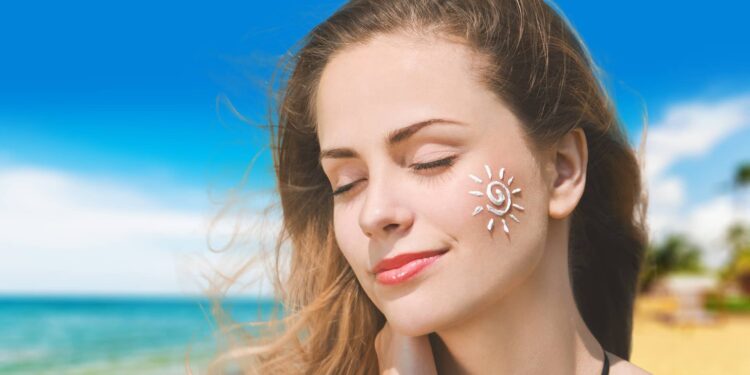One of the incredible natural blessings is Sunlight, essential for preserving human health and well-being in amazing ways. Regular, moderate experience with sunshine has several health benefits that are vital for both physical and mental well-being, but excessive exposure can be detrimental. There are ways that the Benefits of Sunlight impact our general well-being and if we consume this wonder appropriately, we will experience great results.
Life depends on Sunshine, which also has a big impact on people’s health. Again, it is wise to remember moderate exposure to sunshine has numerous health benefits, while excessive exposure might be detrimental.
Nonetheless, this natural and effective resource for improving both physical and mental health has advantages, ranging from nurturing vitamin D levels to supporting improved mood, cardiovascular health, and even skin health. You can enhance your general health and live a livelier, energized existence by sensibly embracing Sunlight and integrating it into your everyday routine. Vitamin D, which is essential for healthy bones, muscles, and general well-being, is produced by your body with the help of moderate sun exposure.
- Serious issues include weak bones, weakened immune systems, and an increased risk of certain diseases that can result from less Sunlight.
- Balance is essential since too much sun exposure can harm the skin and raise the risk of skin cancer.
- You may minimize the hazards and maximize the health benefits of sun exposure by managing your time well.
The Vitamin D Dilemma: Health Advantages Not Just for Bones

Higher chances of autoimmune diseases (including MS and type 1 diabetes), metabolic disorders, cardiovascular problems, and malignancies (like breast and colon) are associated with vitamin D deficiency.
Geographic studies highlight the negative health effects of inadequate Sunlight by signifying that disease frequency is higher at higher latitudes.
Is Sunlight good for you?
Moderate sun exposure may help prevent various cancers and disorders by increasing vitamin D levels, while excessive UVR causes skin cancer. Higher vitamin D levels, for example, are associated with lower chances of multiple sclerosis, hypertension, and certain types of cancer.
However, Safe Practices are important. To maintain sufficient vitamin D levels while reducing skin damage, experts recommend brief, frequent sun exposure. Using sunscreen and avoiding the hours of greatest Sunlight are examples of protective strategies.
To ensure sufficiency without excessive UVR exposure, vitamin D supplements are increasingly advised for populations at risk (such as the elderly, people with darker skin, and people living in high latitudes).
Furthermore, to increase vitamin D awareness and maximize safe sun exposure, specific public health measures are suggested, such as UV alerts. The problem is made more complex by technological lives and an increase in indoor living, which calls for updated health messaging.
Variations in pigmentation, location, age, and lifestyle must all be taken into consideration when framing the hazards and advantages of sunshine. These discussions continue to center on striking a balance between promoting vitamin D sufficiency and protecting against UVR-induced skin malignancies.
An important point to consider is Research Deficits. There is ongoing discussion on the ideal vitamin D levels for preventing disease. Although there is evidence to support moderate UVR exposure and supplementation, more research is needed to determine the long-term effects on different health outcomes.
What are the Dangers of Prolonged Sunlight Exposure: UV Radiation Types?

The majority of UV rays that reach Earth are UVA. It causes aging, wrinkles, and damage that might indirectly result in skin cancer because it penetrates the skin deeply.
UVB: Increases the risk of skin malignancies like melanoma by causing sunburn and direct DNA damage.
Possible Issues with Excessive UV Exposure:
- Creases and skin aging
- Skin loss of vitamin A
- Higher chance of developing skin cancer
- Cataracts (ocular lens clouding)
- Dormant viruses reactivating
Despite these dangers, conditions like skin cancer brought on by excessive UV exposure are frequently less dangerous than those brought on by insufficient Sunlight.
Why Insufficient Sunlight Is a More Serious Issue
The World Health Organization (WHO) claims that overexposure to Sunlight may be less harmful than a lack of it.
- Weak bones and muscles might result from inadequate sunshine.
- An increased likelihood of autoimmune disorders
- Higher risk of developing some deadly malignancies
Vitamin D and Sunlight: The Ultimate Advantage

Sunlight is the primary source of vitamin D, which is essential for good health.
How It Works:
A process that produces vitamin D is activated when sunshine (UVB rays) strikes your skin.
Vitamin D is then converted by your liver and kidneys into its active form, which functions like a hormone in the body.
The Significance of Vitamin D
The fact that sunshine helps in the body’s production of vitamin D is among its best-known advantages. This vital nutrient is produced when Sunlight strikes the skin, and it supports:
Strong Bones: It keeps your bones strong by assisting your body in absorbing calcium and phosphorus. Without it, adults may get osteoporosis or osteomalacia (painful, weak bones), and children may develop rickets (soft bones).
Muscle Health: It makes older persons’ muscles stronger and lowers their risk of falling.
Support for the immune system: It helps in the body’s defense against infections.
So go outside, enjoy the sunshine, and let the light of nature do its magic, but just be careful!
Depending on skin tone and region, most people only need 10 to 30 minutes of Sunlight exposure several times a week.
What is your daily intake of vitamin D?
With just 30 minutes of summer sun exposure in a swimming suit, fair-skinned individuals can produce 50,000 IU of vitamin D.
Dark-skinned people produce even less, about 8,000–10,000 IU, while tanned people produce even less, about 20,000–30,000 IU.
Body fat, sunscreen, and clothing can all lower the generation of vitamin D.
Additional Health Advantages of Sunlight

Beyond vitamin D, Sunlight may also provide the following advantages, however research is still continuing:
Improved mental and emotional well-being (due to serotonin production)
Possible defense against autoimmune disorders and some types of cancer
-
The Proper Sunlight Level
Your skin type and geographic area determine what is “too much” or “too little”:
Fair Skin: Requires less exposure and is more susceptible to sunburn.
Darker Skin: May require more sun exposure to generate adequate vitamin D, but can tolerate longer exposure.
-
Improves Mental Health and Mood
By promoting the synthesis of serotonin, a neurotransmitter linked to emotions of contentment and serenity, Sunlight directly has an impact on mental health.
Lessens Depression: Sunlight exposure helps lessen the symptoms of depression, particularly those associated with seasonal affective disorder (SAD)
Enhances Sleep: By boosting melatonin production at night, Sunlight helps the body’s circadian rhythm or internal clock, be more in balance
Advice: Morning sunshine is particularly good at establishing the natural rhythm of your body.
-
Promotes Heart Health
Improved cardiovascular health has been associated with moderate sun exposure:
Reduces Blood Pressure: Nitric oxide, which helps widen blood vessels and lower blood pressure, is produced in response to Sunlight
Enhances Circulation: More exposure to sunshine may improve blood flow, which lowers the risk of heart disease
-
Makes the immune system stronger
White blood cell production is increased by Sunlight, which is essential for warding off diseases. Sunlight-derived vitamin D also improves the body’s resistance against infections.
-
Encourages Moderately Healthy Skin
Although too much sunshine can damage the skin, several skin disorders can benefit from small quantities, including:
Psoriasis, Acne, and Eczema
Sunlight exposure in moderation can benefit the skin in therapeutic ways:
Relief of Psoriasis and Eczema: UV radiation can reduce inflammation and scaling by slowing down the overproduction of skin cells.
Acne Improvement: In skin prone to acne, moderate sun exposure may lessen inflammation and bacterial growth.
Tip: Even if you’re aiming for skin advantages, always wear sunscreen to avoid damaging UV rays. See a dermatologist to learn more about light therapy alternatives for people with particular illnesses.
-
Promotes Metabolism and Weight Management
According to recent studies, sunshine may help people maintain a healthy weight:
Controls Fat Storage: Exposure to Sunlight may have an impact on fat metabolism and lessen the accumulation of excess fat.
Boosts Energy Levels: Sunlight exposure increases the creation of serotonin, which raises energy levels and makes physical exercise easier and more pleasurable
Tip: To maximize these advantages, include outside activities like strolling or mild exercise during the day.
-
Promotes Eye Health
It has been proven that moderate and indirect exposure to Sunlight improves vision:
Prevents Myopia (Nearsightedness): Outdoor activities have been associated with a lower incidence of myopia development, particularly in early childhood
Controls Eye Functions: Natural light keeps the eye’s capacity to adapt to shifting lighting conditions intact
Tip: To protect your eyes from damaging UV radiation, wear sunglasses that block direct Sunlight exposure.
-
Promotes Relaxation and Less Stress
Exposure to natural sunshine has been shown to reduce stress:
Sunlight exposure helps in the regulation of cortisol, the body’s stress hormone, which can lessen anxiety and promote relaxation.
Encourages Outdoor Activity: Spending time outside in the sun frequently promotes physical activity, which lowers stress levels naturally
Advice: To get the most relaxation, combine mindfulness exercises like yoga, gardening, or taking a nature walk with exposure to Sunlight.
-
Improves Life Expectancy and Quality of Life
Higher levels of strength and life happiness are frequently reported by those who maintain a good balance of sun exposure. Stronger immunity, better mental health, better sleep, and reduced stress are all advantages of Sunlight that add up to a healthier and more satisfying existence.
Advice: To fully benefit from Sunlight, embrace it as a component of a balanced lifestyle and ensure safe exposure.
Deep insights into human health can be gained from the interaction of serotonin, melatonin, and daylight as well as the wider impacts of exposure to Sunlight.
Here is a summary of the main ideas:
Melatonin and Circadian Rhythms: The pineal gland produces melatonin mainly at night, which plays a vital role in controlling the body’s circadian rhythms. Exposure to daylight inhibits its synthesis. Additionally, this hormone has advantages in preventing infections, inflammation, and UVR-induced skin damage.
Brightness’s Effect: Insomnia, PMS, and seasonal affective disorder (SAD) can all be helped by morning exposure to Sunlight or intense artificial light, which increases the generation of melatonin at night.
Seasonal Variation: Because winter nights are darker than summer nights, melatonin levels are higher and last longer.
Serotonin and Mood Daylight Dependency: Melatonin is produced during the day, and serotonin is the precursor to it. Positive moods and mental attention are fostered by high serotonin levels, which are frequently linked to lengthy days.
The role of the skin: According to recent research, skin cells express receptors for both serotonin and melatonin, which are produced by the skin of mammals.
The effects of modern lifestyles
Diminished Melatonin: The generation of nighttime melatonin has been considerably diminished by indoor life and artificial lights.
Professional Suggestions: To promote melatonin rhythms and general well-being, it is recommended to sleep in complete darkness and expose oneself to natural light, especially for brief periods without sunglasses.
Additional Sunlight-Driven Pathways Immune System Modulation: Sunlight affects immunity both directly through the control of cytokines by UVA and UVB rays and indirectly through the activity of melanocytes, which results in outcomes like decreased inflammation of the skin and autoimmune.
Hormones and Neuropeptides:
α-MSH and CGRP: These substances support immunologic tolerance and DNA repair, which may reduce the incidence of melanoma and help with diseases like psoriasis.
Endorphins and Substance P: These neuropeptides, which are released when exposed to UVR, influence immunological responses and cutaneous stress responses, respectively.
Vitamin D Independence: Many UVR-mediated advantages, including endorphin release and immunological suppression, function without the production of vitamin D.
Advice about Sunlight Exposure Safety
Sunlight is necessary, but too much of it can harm the skin and raise the risk of skin cancer. To safely enjoy the sun:
- Use Sunscreen: Even on overcast days, apply a broad-spectrum sunscreen with an SPF of 30 or higher.
- Avoid Peak Sun Hours: The highest UV rays occur between 10 a.m. and 4 p.m., so limit your exposure during these times.
- Put on Protective Gear: To protect your skin and eyes, wear caps, sunglasses, and light clothing.
- Hydrate: When spending time in the sun outside, make sure to drink lots of water.
- Maintain Skin Health: Examine your skin frequently for alterations or odd growths, and seek medical advice from a dermatologist if necessary.
Limitations in the Evidence of Sunlight Research Challenges: The advantages of sunshine are obvious; however the majority of research uses biased observational studies rather than strong interventional trials.
Complicated Elements: Latitude, altitude, clothes, skin pigmentation, and individual behavior all affect the impact of Sunlight exposure. It is difficult to draw firm conclusions because of these complexities.
Better Measurement Instruments: Methods for determining cumulative UV exposure, such as silicone rubber casts, provide more accurate information.
Nonetheless, the Benefits of Sunlight like Optimizing serotonin and melatonin levels, boosting immunity, and enhancing mood and sleep all depend on getting a healthy amount of natural Sunlight.













